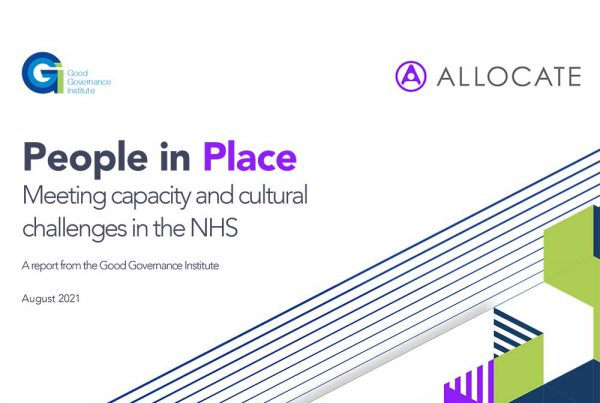Covid-19 caused wide-scale disruption within health and care, revealing the skills of its workforce to be more vital than ever. This disruption has seen positive changes in the way trusts use technology for training and development and has now highlighted the need for new technology to manage skills data for greater efficiency and effective management and delivery of staff resources. Allocate Software Product Manager Shona Blackhall shares some ideas around future innovations.
The Covid-19 pandemic has turned lives upside down. So many families and individuals have experienced loss and it has had such a profound effect on the way we live our lives, interact with each other, and go about our daily work. Nowhere more so than in health and care organisations.
Health technology has long been widely available but adoption has often been sporadic and for many practitioners some health technology has felt like an unnecessary solution to a problem. The notion of certain disciplines engaging in consultations with patients online might have seemed bizarre, even inappropriate just a few months ago. However, when faced with the imperative to adopt to new ways of working, health staff have taken up the challenge and excelled in technology adoption to continue to deliver outstanding service for patients and service users. Initial consultations have been carried out using live video calls, and team meetings conducted via Microsoft Teams and Zoom, with staff working very effectively from home alongside their usual clinical settings.
Online technology has also played a key part in enabling continuing professional development and training for clinical staff. The dynamic nature of the NHS workforce means there is never really downtime when it comes to individual learning and development. Training has to continue in order to keep patients, and staff, safe; Covid-19 or not. A surprisingly high percentage of courses can be delivered online, with only a minority requiring trainers and trainees to be together in a physical space. This huge shift in delivery process has of course required a large scale evaluation of existing course content and delivery by training providers, with sweeping changes to enable effective online learning. The old adage, ‘needs must’, holds true. When forced to consider new ways to use technology the NHS has become an exemplar for change. Many other industries and sectors may learn from this huge public-sector organisation that has proved itself to be highly agile, innovative and adaptable.
Right at the beginning of the pandemic in the UK, many providers quickly realised they did not always have a full or thorough understanding of the skills that were available to them within their own organisations. There were justifiable concerns around potentially losing large numbers of staff, either to illness, self-isolating requirements or to care for their own sick family members. It highlighted the need to back-fill those skills and personnel very quickly. For example, calling upon people who used to work in ICU to step back into those roles, and utilising individuals with similar skillsets from other disciplines to cover shortfalls.
Unlike many other sectors, skills in complex care settings are vital to the delivery of quality care. The safety critical nature of health and care means that a deep understanding of the current valid skills and experience of an organisation’s staff is crucial.
Covid-19 has now further highlighted just how fundamental a comprehensive, detailed database of workforce skills, training and experience is, in order for an organisation to remain responsive and effective when the unexpected comes along.
So how can trusts take control of their workforce’s skills?
We see a number of technology opportunities that can tackle some of the wastage in training and skills development . The sector is collaborating and working hard to develop technologies that can unite entire digital records of employees’ skills, credentials and certification. Such innovation will help trusts meet skills shortages or particular requirements and address medical demand.
This technology can also be applied further when healthcare workers move from one trust to another. When NHS staff join a new health organisation, they receive onboarding training, which can mean an individual may receive the same information over and over, each time they move. With previous training frameworks not always been trusted, new employers often prefer to repeat certain aspects of training to protect themselves and their patients making sure things are done ‘their way.’ But surely in an ideal situation all NHS organisations would be fully joined up, saving themselves the significant costs in time and money because they have full confidence in the credentials and qualifications described on each employee’s ‘skills passport.’ And it is this technology that is now being explored to make this a reality, with a modern NHS taking responsibility for the diverse and complex digital credentials of all of its staff.
The Allocate DevelopMe+ platform already provides trusts with ways to easily manage its skills and learning and development programmes. Whilst Covid-19 has seen the greatest challenge healthcare organsations has had to face, the technology disruption it has forced is something that will now drive the transformation of health care delivery to help create workforces that are responsive to the demands of the future.





